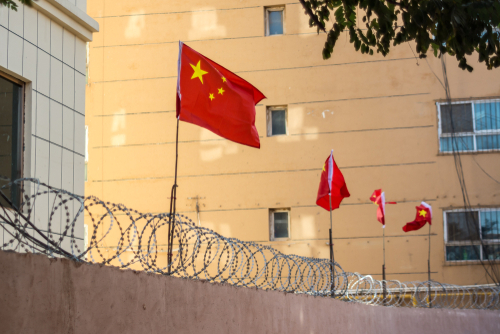U.S. Sen. Ron Wyden (D-OR), chair of the Senate Finance Committee Chair, is leading an investigation into auto supply chain links to forced labor in the Xinjiang region of China.

In December, Wyden sent an initial round of questions to eight major automakers, Ford, General Motors, Honda, Mercedes-Benz, Stellantis, Tesla, Toyota, and Volkswagen, about how they oversee supply chains to ensure no goods made with forced labor are used in autos. The senator pointed out that importing goods made with forced labor is illegal under federal trade laws.
Wyden has sent a new round of questions to tier 1 suppliers, including Continental AG, DENSO Corporation, Magna International Inc., Robert Bosch GmbH, and ZF Friedrichshafen AG. He again requests information about how those companies source materials and oversee their supply chains. He also sent a second round of questions to the eight major automakers this week.
“[Auto] companies rely heavily on their immediate suppliers – often called ‘tier 1’ suppliers – to ensure that forced labor is not used to make components that pass through many layers of complex automotive supply chains before reaching automakers,” Wyden wrote to the suppliers. “Many major automakers require tier 1 suppliers to adhere to ‘codes of conduct’ that require reporting about their sub-suppliers and prohibit sourcing materials from sub-suppliers that use forced labor.”
The investigation was prompted in part by a report by researchers at the Helena Kennedy Centre for International Justice at Sheffield Hallam University. The report found links between Chinese companies operating in Xinjiang and automakers that import parts, including batteries, wiring, and wheels.
“Information I have learned from the initial stages of the Committee’s investigation raises serious questions about tier 1 suppliers’ ability to ensure that sub-suppliers do not rely on forced labor,” Wyden wrote to suppliers. “I recognize that tier 1 suppliers rely on complex supply chains to source thousands of parts from across the world. However, this complexity cannot cause the United States to compromise its fundamental commitment to upholding human rights and U.S. law.”
Wyden has asked for responses to the questions by April 11.